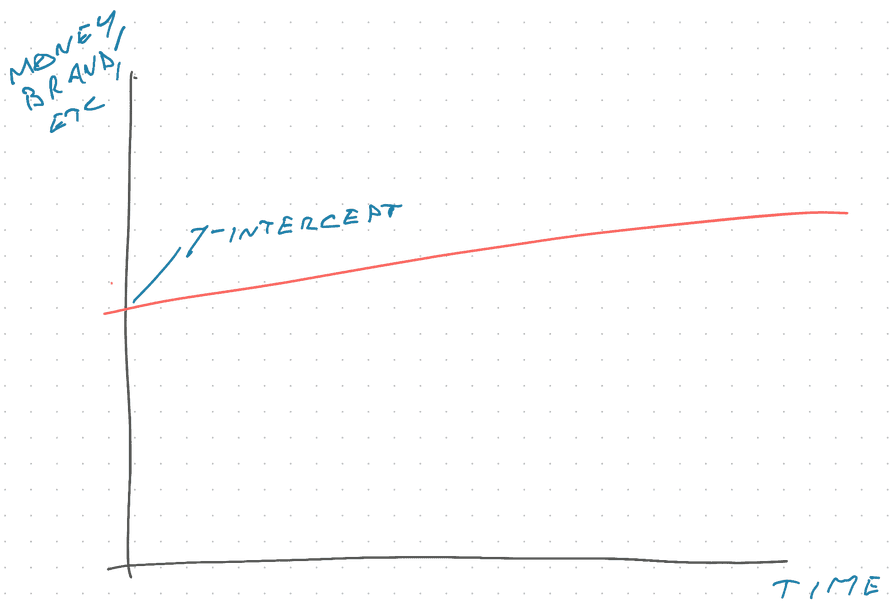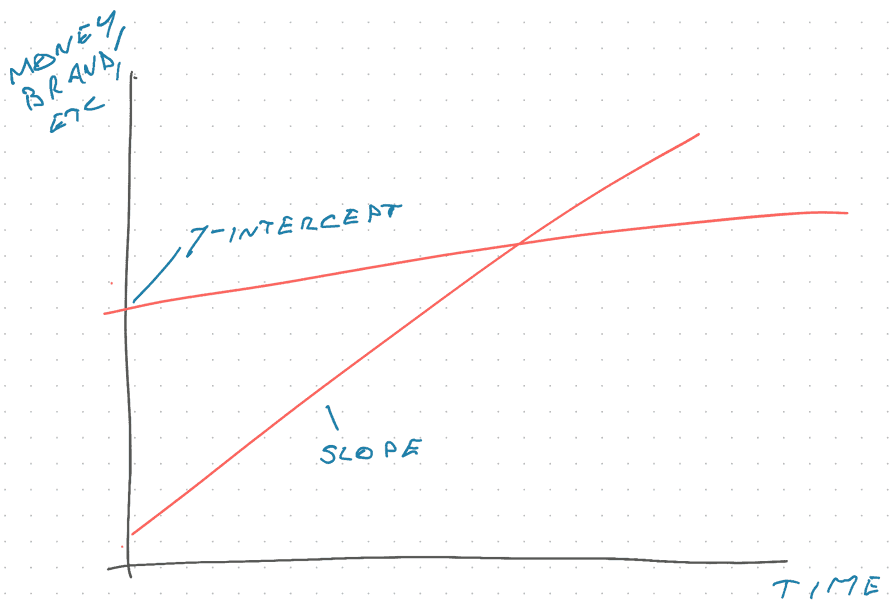Fellow reader Frank writes in with a question about career moves and I thought my answer could help you too.
He's got two offers and a choice:
- Senior dev on biggest salary I've ever had at a big name financial company, old tech, not exciting work.
- Medium dev (tech interview scored me as such) on half the salary as 1 and even much reduced salary from my last one, local smaller company, varying project work, environment full of enthusiastic to learn devs and chill managers.
In the rest of his email Frank describes the first option as soulless and the second as exciting. I think he made his choice before writing :)
And that's an important lesson from Daniel Kahneman's, father of behavioral economics, Thinking, Fast and Slow – we aren't in the driver's seat. Our emotional subconscious is driving while the analytical conscious mind desperately invents justifications and explanations for our actions to feel in control.
Big decisions come from the gut. If you're finding reasons to say No, the answer has always been no. If you're looking for reasons to say Yes, it's always been yes.
Evaluating options
Frank is facing a choice between fast growth and piles of money. You can have both but that's hard to find.
The soulless big company offers lots of money and looks good on a resume. But you "pay" for that money with a slower pace of learning, cookie cutter work in a large machine, and probably learning fewer transferable skills.
Looking at your career from now onward, this gives you a high y-intercept – lots of money, sounds good on resume – but not lots of growth.

The exciting small company offers less money and looks anonymous on your resume. But it offers something a big company can't – wealth of experience. Small companies naturally lead to trying lots of different technologies, touching all parts of the stack, and working closely with stakeholders. There's nobody else to do it!
This leads to fast growth and quick learning – slope.

You can then leverage that faster growth to get bigger opportunities, more interesting problems to solve, and be in a better position for future jobs. Pure career capital.
That triangle between y-intercept and slope, that's your opportunity cost. Will the faster growth catch up to a higher starting point quickly enough to work out long term? That's the bet.
An economist can turn this into a precise formula. I cannot.
An important caveat
Another important consideration is the impact of your environment. You become the average of the people you surround yourself with.
Go into an enthusiastic environment full of bright people doing their best, pushing tech, and having fun 👉 you'll have fun, push tech, and enjoy yourself.
Go into an environment full of people cashing in their paychecks, resting and vesting, and not caring much about their jobs 👉 you'll become a corporate drone.
But not all large companies are like that. And certainly not all teams. If you land on a good team that pushes you and gives space for learning, a big environment can create opportunities that a small environment doesn't even have available.
Similarly a small company can turn into a trap, if you grow faster than the environment and there's nowhere left to go but out.
And it's normal for your priorities to change. Careers are long. You have time to try everything.
A tech career lasts 30 to 40 years.
— Swizec Teller (@Swizec) October 19, 2022
Why do we only talk about the first 5?
Cheers,
~Swizec
Continue reading about Reader question: Work at a big international or a local studio?
Semantically similar articles hand-picked by GPT-4
- Should you join an AI startup right now?
- What if engineers were paid like athletes
- When to join and leave a company, project, or trend
- Why take a bigger role for no bump in pay
- "If you're so good, why aren't you making 600k at BigTech?"
Become a *true* Senior Engineer
Get promoted, earn a bigger salary, work for top companies
Getting that senior title is easy. Just stick around. Being a true senior takes a new way of thinking. Do you have it?
The Senior Minset email crash course
Get a free chapter from the Senior Engineer Mindset book and a sample audiobook chapter, followed by a Senior Mindset 101 email course.
You'll get insights to apply at your work right away.
Have a burning question that you think I can answer? Hit me up on twitter and I'll do my best.
Who am I and who do I help? I'm Swizec Teller and I turn coders into engineers with "Raw and honest from the heart!" writing. No bullshit. Real insights into the career and skills of a modern software engineer.
Want to become a true senior engineer? Take ownership, have autonomy, and be a force multiplier on your team. The Senior Engineer Mindset ebook can help 👉 swizec.com/senior-mindset. These are the shifts in mindset that unlocked my career.
Curious about Serverless and the modern backend? Check out Serverless Handbook, for frontend engineers 👉 ServerlessHandbook.dev
Want to Stop copy pasting D3 examples and create data visualizations of your own? Learn how to build scalable dataviz React components your whole team can understand with React for Data Visualization
Want to get my best emails on JavaScript, React, Serverless, Fullstack Web, or Indie Hacking? Check out swizec.com/collections
Did someone amazing share this letter with you? Wonderful! You can sign up for my weekly letters for software engineers on their path to greatness, here: swizec.com/blog
Want to brush up on your modern JavaScript syntax? Check out my interactive cheatsheet: es6cheatsheet.com
By the way, just in case no one has told you it yet today: I love and appreciate you for who you are ❤️

